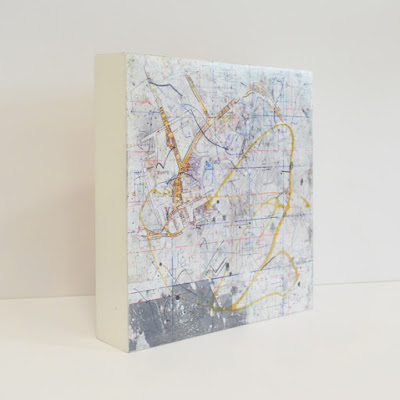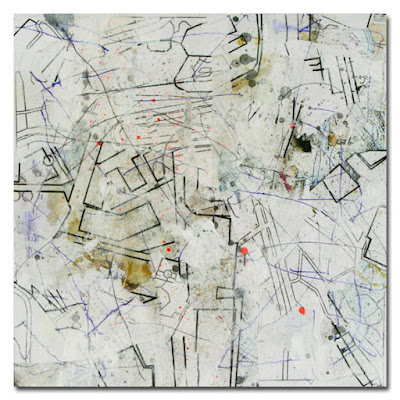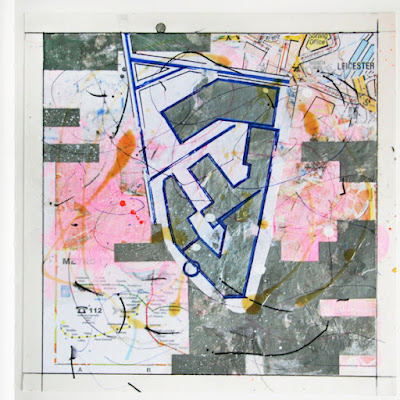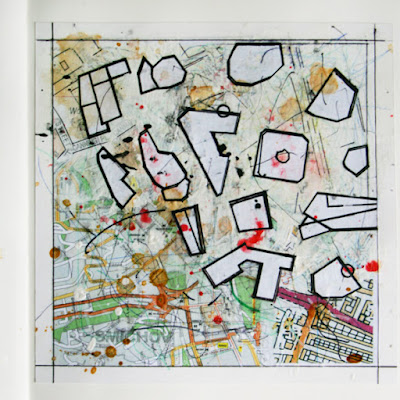 |
| All Images: Lincoln East Bypass, December 2024 |
In what is becoming something of a seasonal tradition, I found myself up on the Lincoln East Bypass, with bike and camera, on Boxing Day. Certainly, this indicates that, like so many of my creative endeavours, my 'The Annihilation of Time and Space' project has been 'ongoing' for much longer than originally envisaged. However, it also means that the scope of the project has expanded to encompass this slice of edgeland in a range of different conditions and moods.
Last year, the landscape was bathed in crystalline winter sunlight, but this time the conditions couldn't have been more different. The entire region was sunk in dank fog and, even in the early afternoon, light was fading fast. The defining characteristics shifted from deliciously blank to poetically bleak.
Given the state of world events, and the trepidation any of us might feel regarding the coming year, perhaps these conditions were glumly appropriate. As the somewhat reduced procession of vehicles beat on into the gloom, it was impossible to avoid the inevitable impressions of a lost civilisation careering headlong into an obscure and forbidding future.
Whatever the truth of that, we can only hope there are still some brighter days to come, whatever the general trend, and to seek the reasons to be creatively cheerful wherever they may be found. The conditions may have made my cycling a little arduous, but they also prompted me to see a familiar environment in fascinating new ways - and to capture some images with a darker romance not previously attached to this particular project. There's usually some uplift to be found if we remain open to the possibility, and - as Albert Camus pointed out, we should still find the time and energy to dance, even on the edge of the abyss.
Happy New Year.



















































